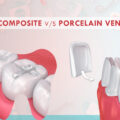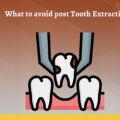
oral health
edental
22 February 2018
How does diabetes affect oral health
According to research, people with diabetes are at higher risk for oral health problems.
If your blood glucose levels are poorly controlled, you are more likely to develop serious gum disease and lose more teeth than non-diabetics. Like all infections, serious gum disease may be a factor in causing blood sugar to rise and may make diabetes harder to control.
Diabetes Teeth and Gum Problems
Too much glucose, also called sugar, in your blood from diabetes can cause pain, infection, and other problems in your mouth. Whether you have type 1 diabetes or type 2 diabetes, managing your blood sugar level is key. The higher your blood sugar level, the higher your risk level.
Because diabetes reduces the body’s resistance to infection, the gums are at risk for gingivitis, an inflammation usually caused by the presence of bacteria in plaque. Plaque is the sticky film that accumulates on teeth both above and below the gum line. Plaque builds up on all of our teeth. However, high blood glucose levels help germs to build up on your teeth and gums, making these problems worse so that you could actually lose your teeth.
Diabetes and Gum Diseases
Gum disease can be more severe and take longer to heal if you have diabetes.
Gum disease is classified on the severity of its development. There are three stages of gum disease:
1. Gingivitis: Gingivitis is the initial stage of gum disease, caused by poor oral hygiene and irregular plaque removal from teeth. It is characterized by swollen, red and tender gums and it can cause bleeding when brushing. Luckily gingivitis is reversible, and through improving your oral hygiene techniques and visiting your dentist or hygienist for advice on a home dental health care program, you should be able to reverse this process.
2. Periodontitis (Mild): Untreated gingivitis can lead to mild periodontitis. The conversion of gingivitis to periodontics is more common in people who have a family history of gum disease, poor oral hygiene and uncontrolled diabetes. At this stage there will be damage to the gums and bone supporting the teeth. In order to prevent further damage a visit to dentist is must.
3. Advanced Periodontitis (Severe): Advanced Periodontitis occurs if these treatments are not administered or if after they are, the routine oral hygiene is not maintained. This condition results in moderate to severe gum loss, significant damage to the connective tissue and loss of bone material. The results of these circumstances can lead to teeth moving or shifting place in the mouth eventually tooth loss.
Advanced Periodontitis is treated by gum surgery where the gums are surgically cut away from the teeth, infected materials are removed, and the gums reattached with stitches to allow them to heal in place.
What other types of problems can you experience?
Other oral problems associated to diabetes include: thrush, an infection caused by fungus that grows in the mouth, and dry mouth which can cause soreness, ulcers, infections and cavities. To prevent problems with bacterial infections in the mouth, your dentist may prescribe antibiotics, medicated mouth rinses and more frequent cleanings.
Dentures – All You Need to Know About
Diabetes and Tooth Extraction
The main issue of blood sugar is not during the extraction procedure, but what may happen after the procedure during the healing period as in delayed wound healing, dry socket or even osteomyelitis.
For guidance on how to adjust your normal routine while your mouth is healing, ask your doctor:
– What foods and drinks you should have
– How you should change your diabetes medicines
– How often you should check your blood glucose
Dental Tips for Diabetics
Diabetics who receive good dental care and have good insulin control typically have a better chance at avoiding gum disease.
Diet and exercise may be the most important changes that diabetics can make to improve their quality of life and their oral health.
Diabetic patients should be sure both their medical and dental care providers are aware of their medical history and periodontal status.
Make sure to take extra good care of your mouth and have dental infections treated immediately.
Use a soft-bristle brush between the gums and the teeth in a vibrating motion.
Rinse daily with an antiseptic mouthwash.




